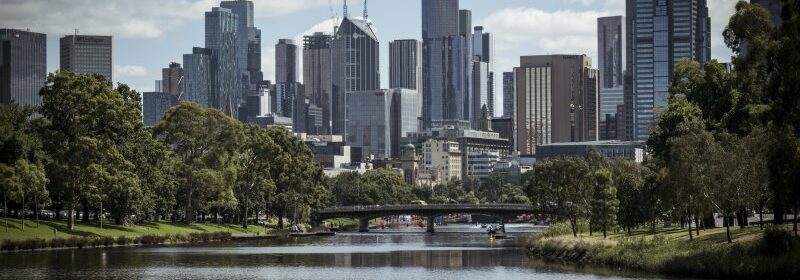Here’s where we can house 2 million more people in Melbourne

Save articles for later
Add articles to your saved list and come back to them any time.
Melbourne is about to go through the biggest population growth surge in its history. A record number of immigrants and international visitors is heading our way, on top of a significant uptick in the birth rate post-pandemic.
Where are these people going to live? Currently, there are 48,000 people waiting for assistance into housing. Rents are soaring due to a lack of supply in the private market.
According to Infrastructure Victoria, more than 44,000 new homes are needed every year for the next 30 years to accommodate an additional 3.1 million people.
I am a longtime supporter of a bigger Melbourne. But it must be well-planned. At the moment, we’re not building enough new homes and we’re not building them in the right places. In the world’s most liveable city, we can surely do better than: “Welcome to Melbourne, I hope you packed a tent.”
The solution to the housing crisis is deceptively simple: build more homes. Where we build the new homes and what form they take will be critical to whether Melbourne preserves its world-renowned liveability.
In recent decades, most of Melbourne’s population growth has been accommodated in the outer-suburban “growth areas”. Just 44 per cent of new homes in Melbourne were built in established suburbs in 2021.
But as Infrastructure Victoria recently reported, providing infrastructure to fringe suburbs costs four times as much as providing it to infill. Locating large populations a long way from employment opportunities and services is also terrible urban planning. It is a long-running trend that is reaching the limits of its viability.
This masthead has argued for a polycentric Melbourne with multiple CBD-like hubs. There are some good reasons to support this model given the existing geographic spread of Melbourne.
But the infrastructure costs of creating transport links to the new hubs is gargantuan. You also need to convince large numbers of people to live and work in these hubs. Previous attempts to do this have fallen well short of expectations.
In the world’s most liveable city, we can surely do better than: “Welcome to Melbourne, I hope you packed a tent.”
In the longer term, a well-planned polycentric city makes sense. But in the short to medium term, a big opportunity rests with housing more people close to existing transport infrastructure and urban redevelopment areas within the existing boundaries of greater Melbourne.
Often overlooked in this debate are the “growth areas” that already exist in close proximity to the CBD or along major transport corridors. Melbourne is blessed to have vast tracts of industrial or underutilised land within a five-kilometre radius of the city.
The City of Melbourne has designated Lorimer, Fishermans Bend, Arden and Macaulay as “renewal areas” which will be transformed into residential and employment precincts. Add to this Port Melbourne, Footscray, Cremorne and in future years Dynon and Docklands (E-Gate), as well as former industrial areas in Brunswick, Preston and Coburg and other inner and middle suburbs. These areas could house up to a million extra people.
A second major opportunity is available along existing tram and train lines and, in some instances, even major arterial roads where there is a first-rate smart bus service. Rezoning of height and density limits along these transport corridors will provide the opportunity for large numbers of people to live in good locations that are well-serviced by transport. Another million people could be accommodated in these “growth corridors”.
The population distribution map of Melbourne looks like a big pancake with a knitting needle in the middle. We’ve made a Faustian bargain where the central city is almost sky’s-the-limit in terms of high-rise living. Meanwhile, most of greater Melbourne is locked up from even modest mid-rise. This needs to change.
Infrastructure Victoria has suggested the answer is for mid-rise development across suburban Melbourne. The practical political reality is that this is challenging.
Development along tram and train lines and major highways is much more politically palatable. To be sure, it will still be challenging, but it should be able to find majority support.
Density and liveability is possible. Copenhagen accommodates about 2 million people in an area the size of the local government areas of Melbourne, Yarra and Port Phillip.
It’s dominant built form is moderate mid-rise, mostly four to six-storey buildings. There is next to no high-rise. Land use has been built around what was originally “The Five Finger Plan”, where urban development focuses on metropolitan train lines with green spaces in between. The train lines and development spread like fingers on a hand from the “palm” of central Copenhagen. As the city has grown, so has the number of fingers.
Copenhagen is obsessed with good design, good planning and building a city and streets to a human scale. Despite a population density much higher than greater Melbourne, you don’t feel overcrowded.
The inner-city growth areas and the transport corridors can show Melburnians how this model of medium-density living can work.
A smart city like Melbourne should be able to get it done.
Nick Reece is Deputy Lord Mayor of Melbourne.
The Opinion newsletter is a weekly wrap of views that will challenge, champion and inform your own. Sign up here.
Most Viewed in National
From our partners
Source: Read Full Article